PARADISE LOST - Britain's Got Talons
June 2, 2020, 4 years ago
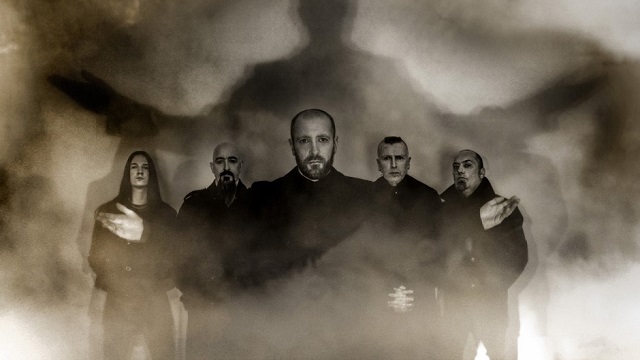
Back in 1997, UK doom / Goth pioneers Paradise Lost threw their fanbase the most brutal of curves with their One Second album. Two years earlier they had released Draconian Times, which went over a storm and was considered the best and most logical way to continue the band's reign, which had been established and cemented with their Gothic (1991), Shades Of God (1992), and Icon (1993) records. One Second's electronic enhanced direction threw some people for a loop while others embraced it, and it was a message - however unintentional at the time - that Paradise Lost will do what they want to their sound, critics and (some) fans be damned. The Goth elements remained at the core as they moved forward with some bold experiments, but it wasn't until Tragic Idol (2012) and The Plague Within (2015) that the band truly seemed to be returning to the full-on doom and gloom that put them on the map. The unleashing of Medusa two years later signalled the band had come full circle, or so it seemed. Obsidian - their 16th album to date - sees Paradise Lost pulling new tricks out of their collective sleeve, twisting their "trademark" early doom / Goth sound into new forms, effectively ripping apart any expectations people may have had going into the record after feasting on Medusa.
"I've become very pragmatic over the years about people trying to nail down our classic period," guitarist Gregor Mackintosh says of fans referencing Paradise Lost's early albums as their best work. "I think it has more to do with the time period in which an album comes out. For example, I don't think Draconian Times would have been as popular if it came out two years later or two years prior. It's pure circumstance sometimes. You can have strong material and be completely passed over. I take everything with a pinch of salt, really."
According to Mackintosh, Paradise Lost has indeed put albums out that they thought were strong, yet the media and fans were unimpressed for the most part.
"Lots and lots of times, yeah," Mackintosh laughs. "We've completely missed the mark or the scene has missed us, whichever way you want to look at it. We've been kings of shooting ourselves in the foot in certain parts of our career, but that's from somebody else's perspective. From our perspective we did exactly what we wanted to do and we wouldn't change it, but from a commercial point of view... absolutely; we've gone off on a tangent and everybody hated it (laughs)."
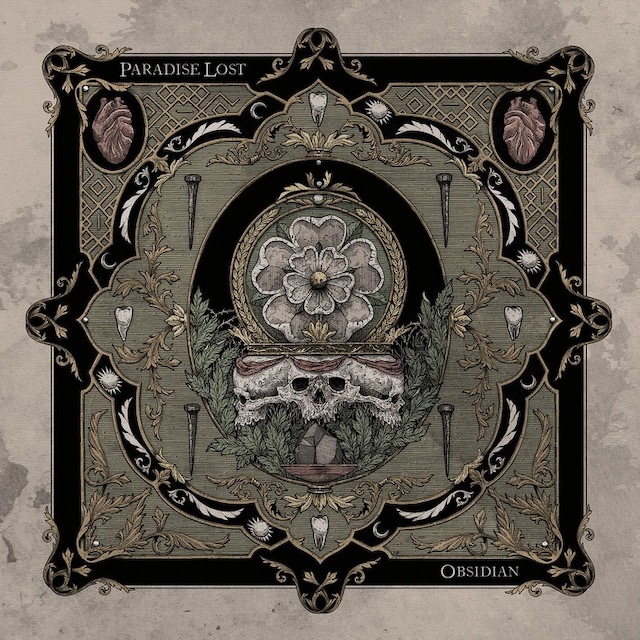
And yet Paradise Lost is still here and still capturing and keeping the fans' attention. They must be doing something right.
"Possibly," Mackintosh concedes. "I've seen recent stories on us saying we're an underrated band, and at the same time other people are saying 'Hey, are those guys still going?' I don't know what to believe about us so we just keep doing what we're doing. For me, this is still fun to do. I get a lot of enjoyment out of Paradise Lost, and we get along better now than we ever have done. There are no egos involved, we all have a very similar sense of humour, so to be able to do this as our main thing... what's not to like?"
It's a gross understatement to say that Obsidian is different from Medusa. Both are distinctly Paradise Lost, but anyone expecting the darkened rage of Medusa is going to be surprised.
"That's the disconcerting thing about this new record. Medusa did far better than I thought it would. The rest of the band were skeptical about doing a doom record, which is what Medusa was. That was my idea because I just wanted to do a fuzzed out doom record, and I asked them to just roll with it. It was probably the most successful Paradise Lost record of the last 15 years. It was definitely the most successful touring we've done in the last 15 years. It was received way better than I thought it would be, and that got me to thinking that maybe Obsidian is not the record that people want (laughs). There are a couple of tracks that have similar traits to the songs on Medusa, but overall it is more varied."
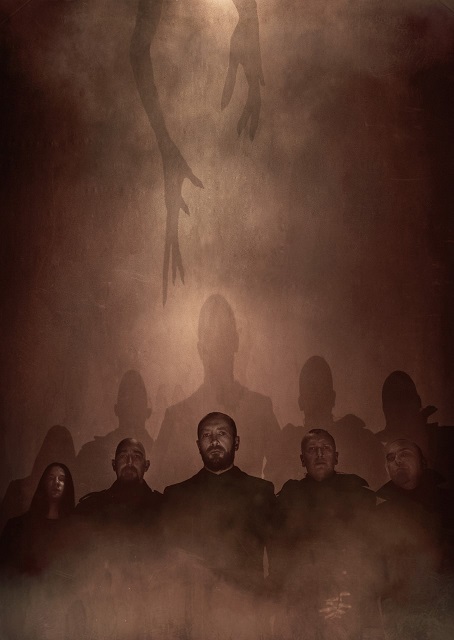
Frontman Nick Holmes describes Obsidian's opening track, "Darker Thoughts", and one of Paradise Lost's most eclectic songs ever. It certainly is not what one expects as an album opener from the band.
"I don't know if it's the most eclectic album we've ever done, but it's definitely more varied than the last one," says Mackintosh. "'Darker Thoughts' as the first song on the album, there is no other place that it could be for us. The song throws people into a false sense of insecurity or security depending on your viewpoint. It's a tester, really. If you can handle that song you can handle the album."
"Obsidian is a result of we did what we did on Medusa, and we didn't want to do it again," he adds. "We kind of always knew that things would go this way, even before we did Medusa. We knew we weren't going to be a doom band for the rest of our career. We have a song on The Plague Within called 'Beneath Broken Earth', and writing that song just made me want to do a full album of shit like that. I knew we weren't going to continue Medusa because it wouldn't have been fulfilling. I probably would have gotten bored of that before the rest of the guys in the band. It's weird because, years ago, it was me that was always the experimental one, and Nick was always trying to rein me in. Now he really pushes me to do whatever I want to do and I'm not sure where that's come from. Maybe I've broken him down over the years (laughs). As long as we're on the same page, as we were with this one, everything is good."
Saying that Obsidian is an album of contrasts sounds like a journalistic Get Out Of Jail Free card - a lazy and painful hack writer cliché - but the album is exactly that. There's a surprising amount of clean guitar on the record, and a common element is Nick Holmes using his clean voice over heavy passages, as well as the other way around.
"With the guitars, that was more of a definite idea," Mackintosh admits. "Having done Medusa with the definitive rhythm guitar sound, it can get a little bit boring with the way metal albums are put together; you've got your rhythm sound and that's it. It's set in stone. But that's not it; you can mess around on different tracks and do a lot of different things. It kind of freaks a lot of metal producers out when bands want to do that (laughs). I deliberately used a lot of different guitar sounds on Obsidian, a lot of clean stuff that I wouldn't have dreamt of doing on the last record, just to shake it up, really. I wanted to give the album more light and shade."
"When people say something's really heavy, you can only judge that on what comes before or after it. If everything was heavy then nothing would be heavy, if you know what I mean. So yeah, there are some very quiet parts on this record, some very heavy parts, and you picked up on something that I really like: when we go into some really heavy parts Nick's vocals become really subtle and clean, and vice versa. It's cool to be able to do that."
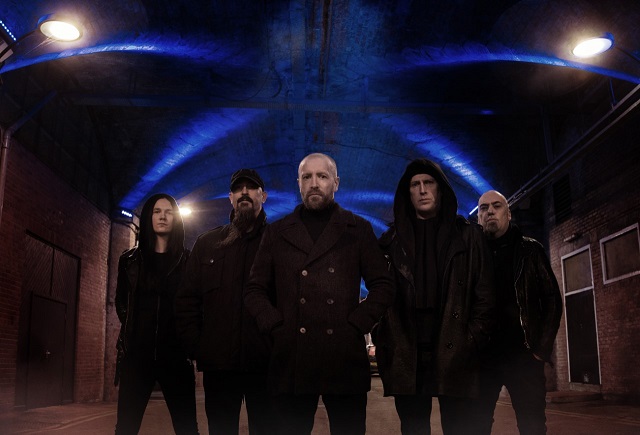
The vocals really stand out on Obsidian for this reason.
"Yeah, that's not in vogue at the moment. You either do one thing or the other. We love the contrasts, we love messing around with things like that. It comes as a product of that style of songwriting I mentioned because Nick sends me files of these different vocal styles singing the same line, and I try them with different parts of the music. That's how we put the songs together and it makes for a more interesting end result. It's much more satisfying as a songwriter to come up with something that you wouldn't normally be comfortable with, but when you get it finished it all comes together. The only difficult part of that kind of songwriting is when you're assembling all these parts into a song, it's like doing a 1,000 piece jigsaw puzzle with no picture. Getting things to flow properly, that's the only time consuming part."
That said, there must be some pretty diverse versions of the songs that appear on Obsidian in the archives.
"Oh yeah, there's some crazy shit (laughs). We had to make a decision at one point as to what type of album it was going to be because it could have sounded very different if we'd taken variations on songs. But that's half the fun of it; you get to decide your own fate. It's like one of those Choose Your Own Adventure books where you pick the page number to continue your story.... and sometimes you get it wrong (laughs)."
And although Obsidian takes the listener on a rather twisted musical journey, it comes full circle with closing track, "Ravenghast". In fact, it sounds like a bookend to "Darker Thoughts".
"The last tracks written for the album were 'Darker Thoughts' and 'Ravenghast'. ‘Darker Thoughts' was the next to last song, and I was originally writing it as an album intro. I sent it to Nick and we kept working on it until it became what it is now. And the last track, I wrote it because I felt the album was missing some pomposity (laughs). It sounds strange, but as an artist you're always scared of crossing that line into cheesiness, and we're so aware of it ourselves but we tend to overcompensate and play it on safe side. I figured we could push the bar on the last track and make it something that's a bit overblown because the rest of the album isn't too much of that. It just elevated itself into that sort of thing by the end of the record."
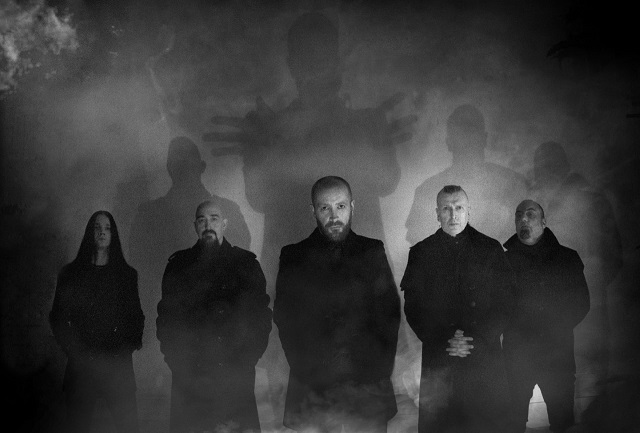
Albums live and die by their running order, and it's safe to say the decisions made as Obsidian was brought to life were good ones.
"Absolutely. Sometimes that has been a bone of contention between me and Nick, but over the last few albums we've been very much on the same page with these things. And with 'Darker Thoughts', we both thought it couldn't go anywhere except being the first track on the album because it's just different from your classic Paradise Lost opener... or classic metal opener for that matter. I think a lot of people will go 'What the hell is this?' and not even get to the part where it kicks in (laughs)."
Regardless of how Obsidian is received by the fans or how the press decides to label it, Paradise Lost will remain a doom / gothic metal band in the public consciousness. It's a label Mackintosh and his bandmates wear proudly even if the music they release at any given time may stray from that particular genrefication, because they will always return to it.
"It's all stuff we grew up with," says Mackintosh. "When you're a teenager, all the stuff that affects you deeply, musically, or artistically tends to stick with you as baggage whether you like it or not. A song like 'Ghosts' on the new album is a direct result of us going into Goth clubs in the '80s in the town that we came from (Halifax). It was a hotbed for that kind of stuff at that time. There were The Sisters Of Mercy in Leeds, The Cult in Bradford, New Model Army and all these bands that just rubbed off on us and became ingrained in what we do. It's the same with Nick's lyrics, these dour, downtrodden, self-deprecating lyrics. It's almost like the lyrical version of a working class man from the place we came from."
(Photos by: Anne Catherine Swallow)











